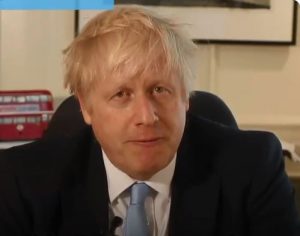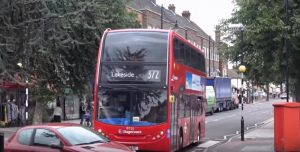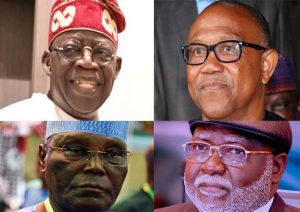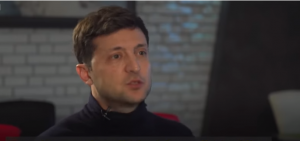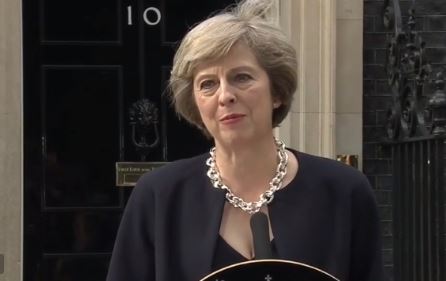
The Guardian, UK: Theresa May insisted she could fight another general election as prime minister, arguing that she is “not a quitter” despite June’s disastrous election result and repeated criticisms of her leadership style.
Risking reigniting anger from within her own party, the Conservative leader said that she was “in this for the long term” and that there was no foundation to reports that she planned to step down in 2019 after Brexit.
In a television interview in Japan, where May has been meeting Japanese prime minister Shinzo Abe, she said: “There’s a real job to be done in the United Kingdom. It’s about getting the Brexit deal right, it’s about building that deep and special partnership with the European Union but it’s also about building global Britain, trading around the world.”
Asked if she would step down before the next election, due in 2022, May told ITV: “I’m not a quitter.” Talking to Sky News, May was asked if she wanted to lead the Conservatives into another election. “Yes,” she replied. “I’m in this for the long term.”
The prime minister is keen to stamp her authority on her party before a series of tough Brexit battles in autumn’s parliament, with the EU (withdrawal) bill returning to the House of Commons next week.
But she insisted her personal ambitions extend beyond the Brexit negotiations, the third round of which continued in Brussels on Wednesday. “What I’m clear that I want to do is, yes, get on with the job of Brexit, but it’s not just about Brexit. What I want to do is a lot more about the long term, which is about changes domestically, on issues like social justice,” she said, speaking to reporters on the flight to Japan.
May has been widely viewed as a lame duck prime minister since the election, which saw her criticised for being unwilling to engage with voters, a repeated use of stale formulations such as “strong and stable leadership” and offering up a narrow set of policies that did not capture the public imagination.
The Conservatives lost their overall majority, and May apologised to the Tories’ backbench 1922 Committee, telling the MPs she would only serve as long as they wanted her to fix the “mess” she had created. Many thought that meant she would hang on only to conclude the Brexit talks.
Some MPs, including serial backbench rebels Anna Soubry and Nicky Morgan, have made it clear they believe May cannot lead the party into another election. Morgan said in June that the Conservatives “must not miss the opportunity” of replacing May once the Brexit negotiations are completed next year. Former chancellor George Osborne, now Evening Standard editor, described her as a “dead woman walking”.
Cameronite Tories are unenthusiastic about any of the cabinet big beasts who would be frontrunners for the leadership if a contest was held immediately – Boris Johnson, David Davis and Philip Hammond. They hope delaying a contest could allow younger candidates, such as defence select committee chair Tom Tugendhat, to build up their reputation.
Leadership hostilities ceased over the summer only on the tacit understanding that May was willing to take the flak over Brexit, and then step down.
Johnson, speaking to the BBC on a visit to Nigeria, said he would continue to back May. “We need to get Brexit done,” the foreign secretary said. “She’s ideally placed to deliver a great outcome for our country and then deliver what we all want to see, which is this exciting agenda of global Britain. I think she gets it. She really wants to deliver it. I’m here to support her.”
One senior Conservative backbencher told the Guardian most MPs would be relieved rather than concerned by the prime minister’s words. “It’s far better that there’s clarity that she’s here for the long haul, it should quieten some of the nonsense that we’ve seen, which has now died down and was coming from one or two people at most,” the MP said. “No Conservative MP should want any talk of a leadership contest or an early election. There’s a serious job to do.”
Sarah Wollaston, the Conservative health select committee chair, who was critical of May and the “negative” Tory manifesto, said most backbenchers believed the prime minister had learned from the election and had listened to concerns. “She was right to do this to put a lid on the wild speculation,” Wollaston said. “The country needs a period of calm.”
Two former Conservative MPs ousted at the last election both warned that May needed to offer something more hopeful if she planned to fight the next one. Ben Howlett, who lost his seat to the Lib Dems in Bath, said he was optimistic the announcement would “start to settle the government and the party” and “even start to give stability to Brexit discussions”.
Neil Carmichael, who lost his Stroud seat to Labour, said the PM still had to learn from her mistakes. “This is going to be a turbulent time and I suppose it’s wise for the captain of the ship to remind people she is still holding on,” he told BBC Newsnight. “I’m sure if she was to fight the next election she would focus on the economy – I can’t imagine there would be any mention of fox hunting.”
Jon Trickett, shadow cabinet office minister, said May’s comments showed the prime minister was “deluding herself” about her prospects. The Labour MP said: “Theresa May leads a zombie government. The sooner the public has a chance to vote her and her government out, the better for our country’s future.”
The PM’s comments carry an echo of Margaret Thatcher’s infamous 1987 promise to “go on and on” in power, seen retrospectively as a starting point for the dissent which eventually toppled her three-and-a-half years later.
May’s visit to Japan will see her hold a series of talks with Abe, as part of an intensive three-day visit intended to reassure the country that the UK can swiftly replicate the trade benefits of EU membership after Brexit.
The first day saw the pair mainly discuss the threat from North Korea following the missile fired by Pyongyang over northern Japan on Tuesday. May told Abe that Britain “stood shoulder-to-shoulder with Japan in the face of North Korean aggression”, her spokeswoman said afterwards.
May began her discussions with Abe over a traditional tea ceremony in Kyoto, before a dinner where the dishes included salted sea cucumber entrails with yam.
During a joint train trip to Tokyo on a Shinkansen (bullet train), May briefed Abe on the progress of Brexit. Discussions on Thursday will centre on May’s hope to kick-start post-Brexit trade by replicating existing or pending deals agreed by the EU, starting with Japan.

